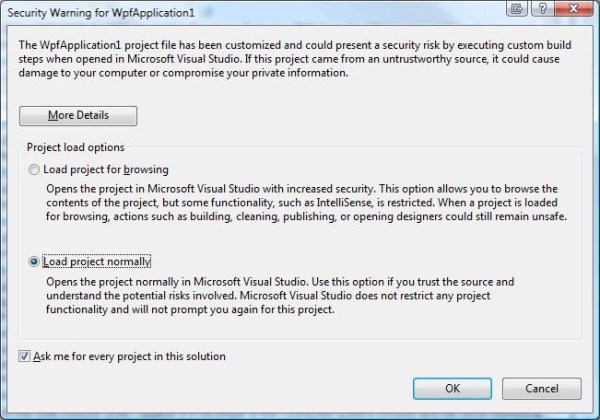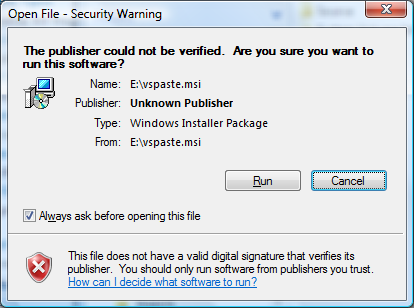

However, given that you have enough resources to be hitting the 32000 character command line limit, you probably don’t want to be starting up and shutting down an individual ResGen.exe for every resource – it will work but be very slow. One extreme would be to add and ‘%(EmbeddedResource.Identity)’ != ” to the Condition – this has the effect of causing GenerateResource to batch on every single resource individually. TrackerSdkPath=”$(ResGenTrackerSdkPath)”> TrackerFrameworkPath=”$(ResGenTrackerFrameworkPath)” ToolArchitecture=”$(ResGenToolArchitecture)”

TrackerLogDirectory=”$(TrackerLogDirectory)” MinimalRebuildFromTracking=”$(MinimalRebuildFromTracking)”

SdkToolsPath=”$(TargetFrameworkSDKToolsDirectory)”ĮnvironmentVariables=”$(ResGenEnvironment)” ’$(IntermediateOutputPath)%(ManifestResourceName).resources’)”Ĭondition=”‘%(EmbeddedResource.Type)’ = ‘Resx’ and ‘%(EmbeddedResource.GenerateResource)’ != ‘false'” Be sure to back up your copy – if you make a mistake, you won’t be able to build at all. This file is in your %windir%frameworkv8. (4) If that’s still not enough, you can resort to extreme measures! This means modifying the GenerateResource target so that it doesn’t try to consume all those references at once, by modifying the condition in the CoreResGen target in (find the line in bold below). Those that do already have a ReferencePath will ignore this environment variable. Simply set an environment variable ReferencePath with the value “j:” and launch VS from that window. If you have more than one project with this problem, you may be able to avoid setting the ReferencePath on all of them if they don’t already have a ReferencePath. You can do the same technique, using a different drive, to point to some place where several other references are If it doesn’t, that means that your remaining references are still too long. (If there’s already existing entries, put it at the front.) It’s in slightly different places for VB and C# projects:Īdd “j:” or whatever your subst drive was to the Reference Paths. (d) Back in VS, open up the project properties and look for Reference Paths. Subst j: “C:Program FilesReference AssembliesMicrosoftFramework.NETFrameworkv4.0ProfileClient” (c) In a console window, use subst to make an unused drive letter point there. It’s probably something like “C:Program FilesReference AssembliesMicrosoftFramework.NETFrameworkv4.0ProfileClient”. NET Framework references are coming from. You’ll see your references’ paths getting passed to resgen.exe. (b) Build the project with the problem and look in the build log for the resgen.exe command line. (You can set it back after you’re done applying the workaround) Here’s the Options dialog with the dropdown circled. (a) Dial up the build verbosity to Normal in Tools>Options>Project>Build. (3) If your build still fails, or there’s no references you can remove, this workaround should avoid the problem: That might reduce the length of the command line just enough. (2) If that’s not possible, remove any references your project has that it doesn’t actually use in the code. Just open up your project properties, and change the dropdown (see image) Obviously, if you’re working on a serious project, that’s likely not acceptable, but if you’re just experimenting with the RC, you might be okay with that, and it’s easy to do. (1) Retarget the project to 4.0 until RTM So what we want to do is make those paths shorter. Essentially the problem is the combined length of the paths to all your references isn’t being included when we figure out whether to break up the inputs over more than one resgen.exe command. Meanwhile, here’s some workarounds to get you unblocked while you use the RC build. The other case will be fixed for the final RTM release. This bug was reported in Beta 2, but unfortunately the fix we made in time for the RC release only fixed the most common case. ĭ:(1835,9): error MSB6003: The specified task executable “ResGen.exe” could not be run. Try reducing the length of the command-line by breaking down the call to “ResGen” into multiple calls with fewer parameters per call. resx files, your build may break with an error message like thisĭ:(1835,9): warning MSB6002: The command-line for the “ResGen” task is too long.Ĭommand-lines longer than 32000 characters are likely to fail. If you have the RC build of VS2010, you are targeting the 3.5, 3.0, or 2.0 Framework, you have a VB or C# project which has a lot of references, and you also have a lot of. As always, feedback is welcome! Please leave your comments in this blog post and report any bugs on Microsoft Connect.


 0 kommentar(er)
0 kommentar(er)
